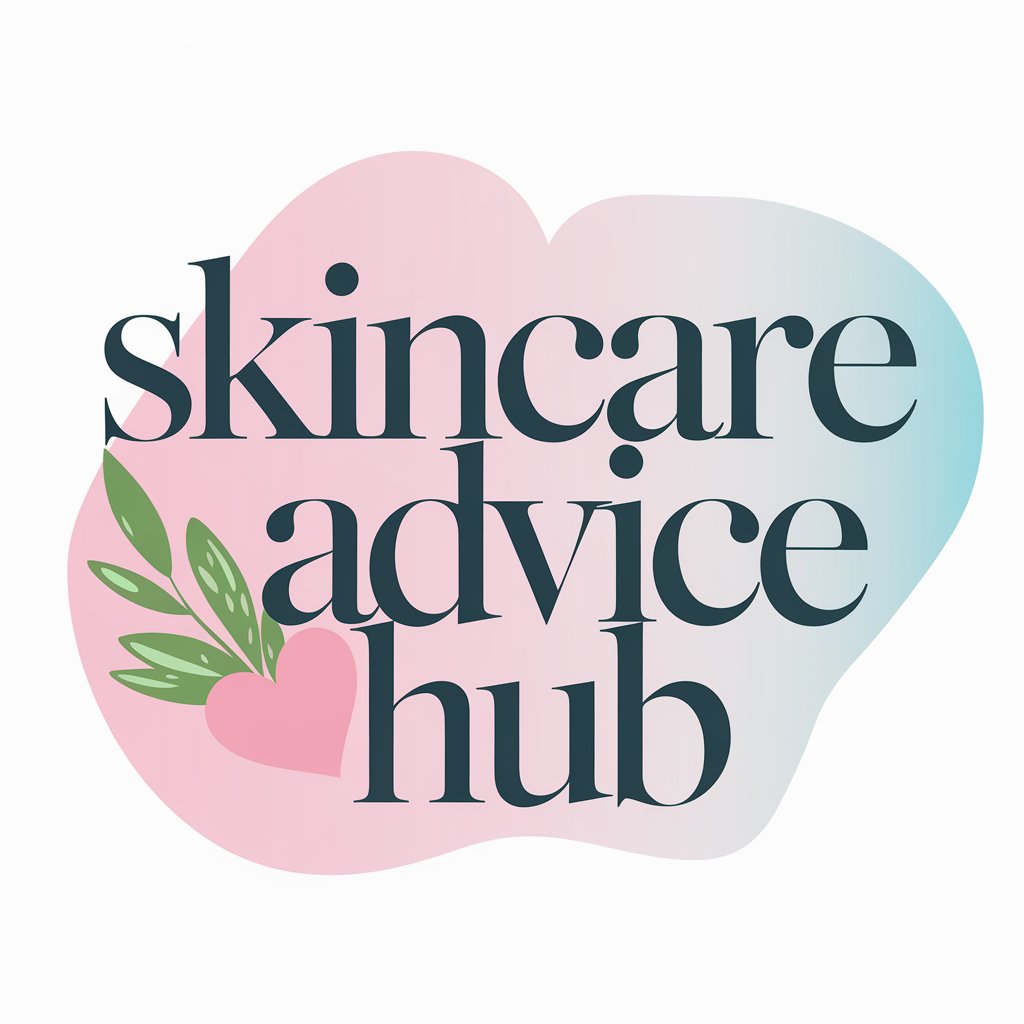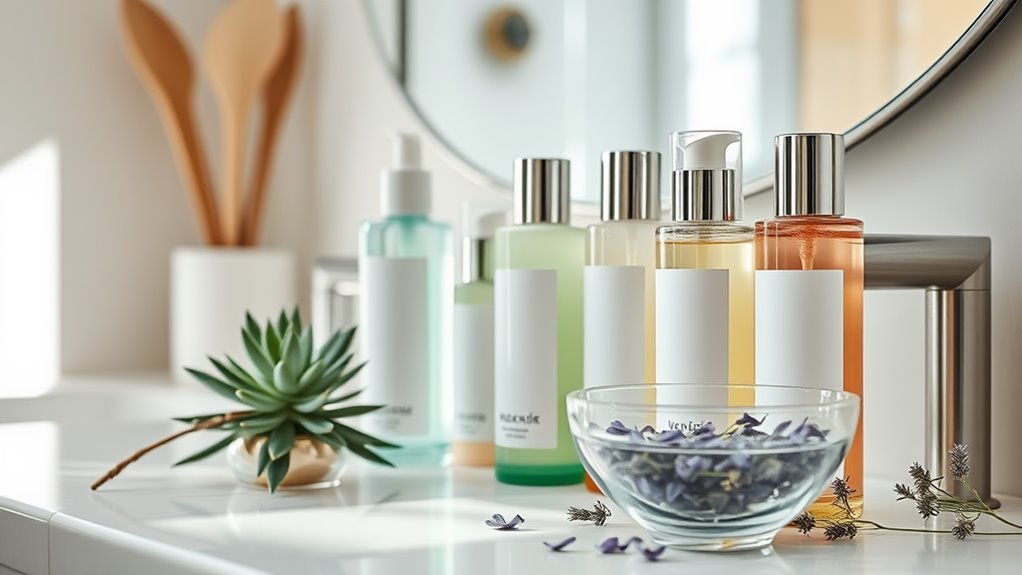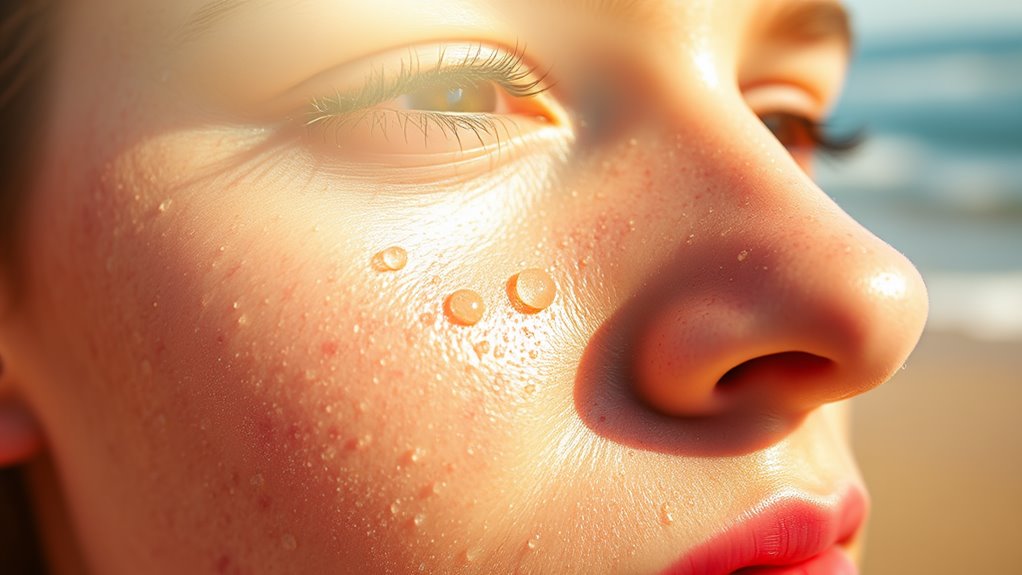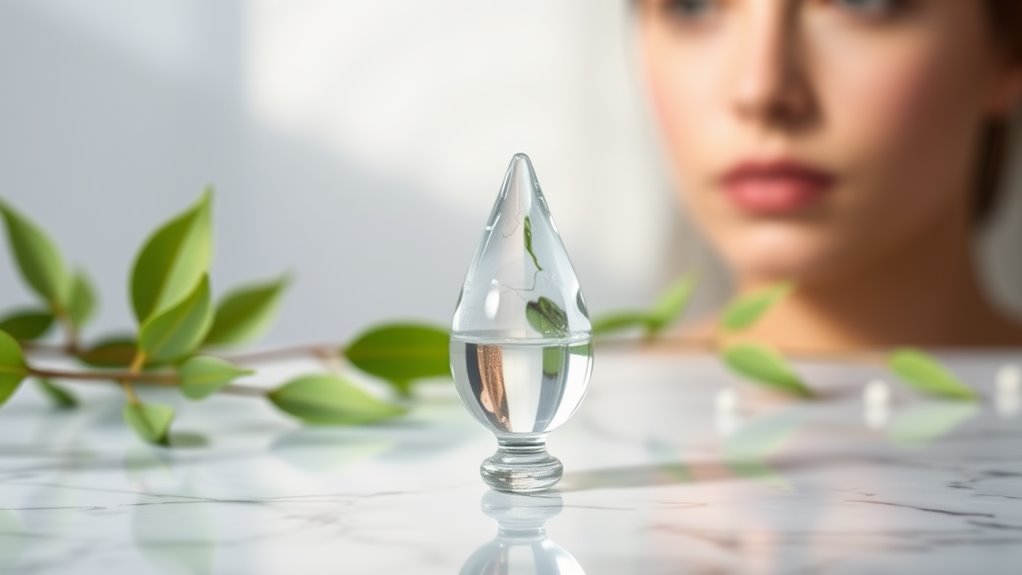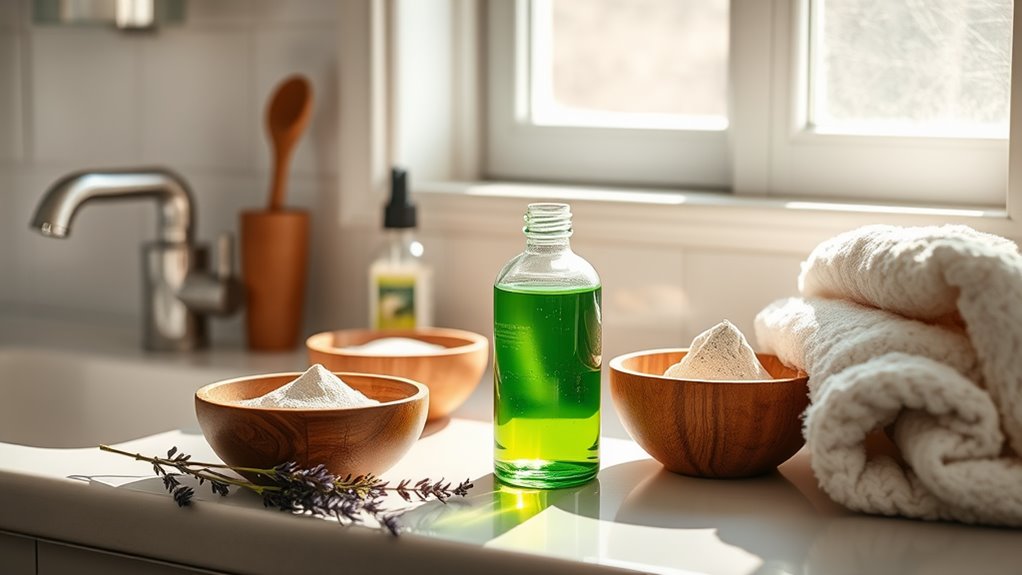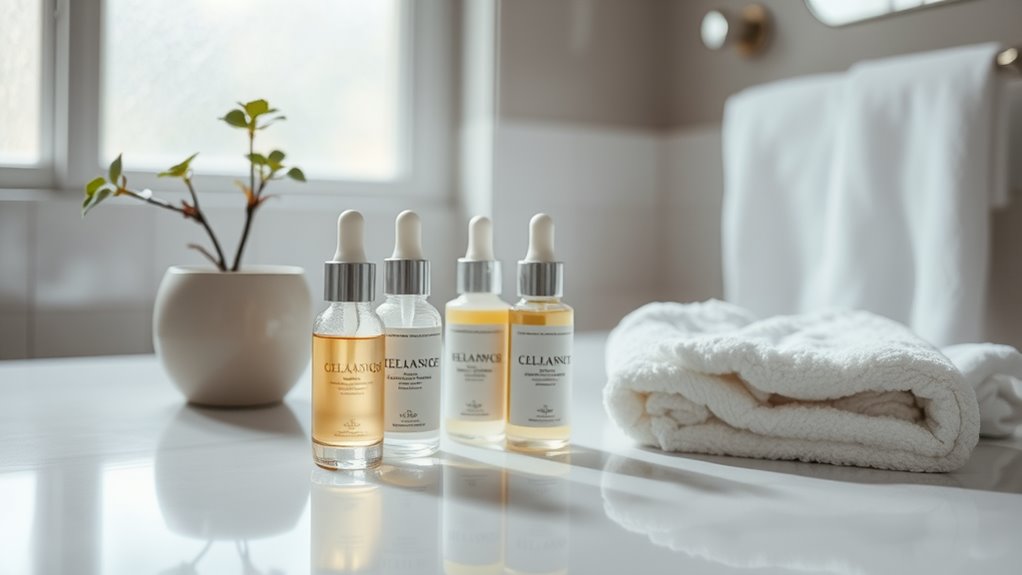How to Beat Hormonal Acne With Skincare
If you’re struggling with hormonal acne, it’s important to tailor your skincare routine to your specific needs. Understanding your skin type can make a difference. Gentle exfoliants can help, but they shouldn’t irritate. And remember, even if your skin’s oily, moisturizing is key. Curious about how to find the right products and techniques to tackle this issue? Let’s explore effective strategies that can lead you toward clearer skin.
Key Takeaways
- Identify your skin type and use non-comedogenic products tailored to your specific needs to prevent clogged pores.
- Incorporate gentle exfoliants like salicylic acid or glycolic acid two to three times a week to promote cell turnover.
- Use lightweight, oil-free moisturizers with hydrating ingredients like hyaluronic acid to maintain skin balance without adding excess oil.
- Apply broad-spectrum sunscreen with at least SPF 30 daily, especially when using exfoliants, to protect against UV damage and sensitivity.
- Stay consistent with your skincare routine and consult a dermatologist for personalized advice to effectively manage hormonal acne.
Effective Skincare Tips for Hormonal Acne
Although hormonal acne can feel overwhelming, there are effective strategies you can use to regain control of your skin. First, understanding your skin type is essential. Tailoring your skincare products to your specific needs will make a significant difference. For instance, if you have oily skin, look for non-comedogenic products that won’t clog your pores. This is one of the most important hormonal acne tips you can follow.
Next, consider incorporating a gentle exfoliant into your routine. Salicylic acid or glycolic acid can help promote cell turnover, keeping your pores clear and reducing breakouts. However, don’t overdo it; exfoliating too often can irritate your skin and worsen your condition. Aim for two to three times a week, depending on your skin’s sensitivity.
Moisturizing is another non-negotiable step, even if you have oily skin. Opt for lightweight, oil-free moisturizers that hydrate without adding excess oil. Look for ingredients like hyaluronic acid to keep your skin balanced and prevent dryness, which can trigger more oil production.
Don’t forget about sunscreen. Protecting your skin from UV rays is critical, especially when using exfoliating ingredients, which can make your skin more sensitive. Choose a broad-spectrum sunscreen with at least SPF 30 to shield your skin from damage.
Lastly, be patient and consistent. Hormonal acne may take time to improve, but with the right skincare routine and commitment to these hormonal acne tips, you’ll start to see positive changes. Track your progress, and don’t hesitate to consult a dermatologist for personalized advice tailored to your unique situation. Additionally, mastering oily skin can help you choose the right products that work harmoniously with your skin type, minimizing breakouts and excess oil production.
